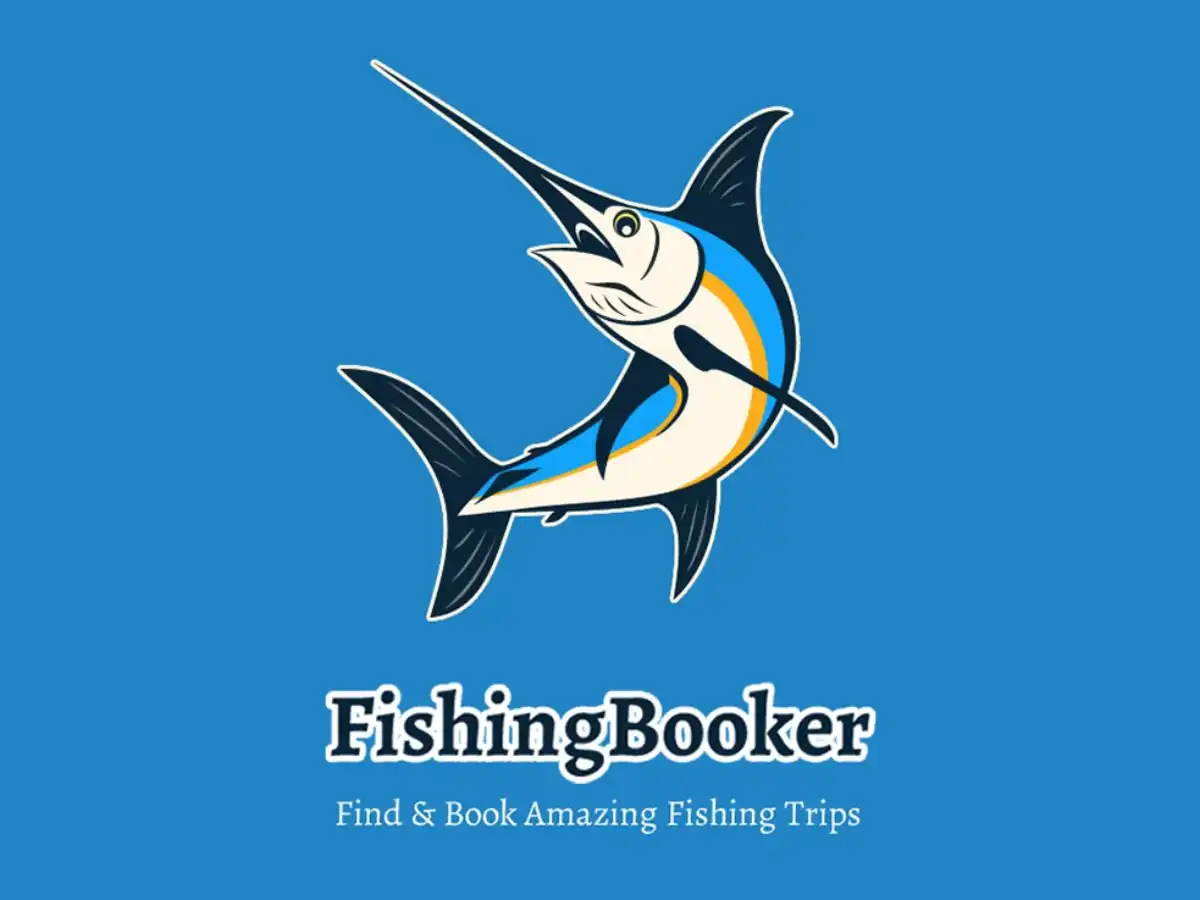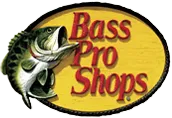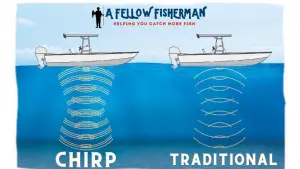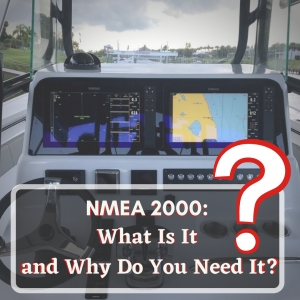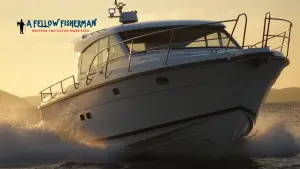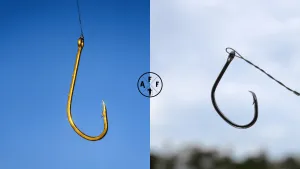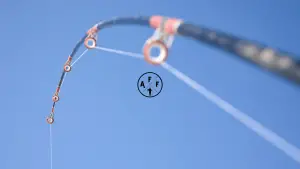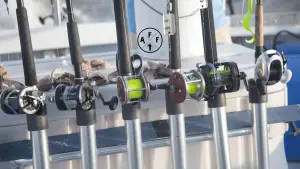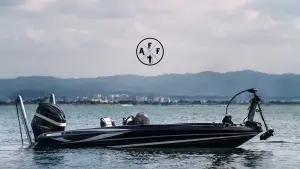As an avid angler, I understand the importance of being aware of the fishing license requirements in Ontario. Fishing is a popular pastime in the province, and adhering to the regulations ensures the activity remains sustainable and enjoyable for all. In this article, I will discuss the Ontario fishing license requirements for both residents and non-residents to ensure that you are well informed and prepared for your next fishing adventure.
Firstly, it is vital to note that anyone aged 18-64 who wishes to fish in Ontario waters must have an Ontario fishing license. This applies to both resident and non-resident anglers. The fishing license consists of two parts: an Outdoors Card, which is a plastic ID card valid for three calendar years, and a fishing license, valid for either one or three calendar years.
Looking for a fishing charter? Find the best deals online. Search, book & review over 11967 charters in 110 countries. Family fishing, sportfishing - you name it!
In Ontario, there are two types of fishing licenses available: conservation and sport. The conservation license offers reduced catch limits and is aimed at those wishing to fish for conservation purposes only, while the sport license offers normal catch limits and is suitable for most recreational anglers.
Ontario Fishing License Types
Sport Fishing
In Ontario, a Sport Fishing license allows Canadian residents and non-residents alike to fish using normal catch limits. I’m aware that fees for the licenses may vary depending on the duration chosen by the applicant. For instance, a 1-year sport fishing license costs $26.57, while a 3-year sport fishing license is priced at $79.71.
To fish using a Sport Fishing license, one is required to have an Outdoors Card, the cost of which is $8.57.
Conservation Fishing
Another license option I consider when fishing in Ontario is Conservation Fishing. This license type enforces reduced catch limits in an effort to preserve fish populations. Similar to the Sport Fishing license, the fees for Conservation Fishing licenses depend on the duration desired:
- 1-year conservation fishing license: $15.07
- 3-year conservation fishing license: $45.21
As a reminder, individuals under the age of 18 or 65 years and older who are Ontario or Canadian residents are exempt from obtaining an Outdoors Card or fishing license. Nevertheless, they can use a valid federal, provincial, or territorial government-issued identification card that states their name and date of birth in place of a fishing license. Additionally, non-Canadian residents under 18 years of age may fish without a license if accompanied by someone holding a valid Ontario Recreational Fishing License.
License Eligibility
In this section, I will cover the eligibility requirements for obtaining an Ontario fishing license. I will discuss age requirements and specific requirements for both residents and non-residents of Ontario.
Age Requirements
For individuals to obtain a fishing license in Ontario, it is important to consider the age requirement. Most people who are 18 years and older need to have a fishing license if they wish to fish in public waters in Ontario. However, there are exemptions – such as participating in Ontario Family Fishing Events, during which licenses are not required.
Ontario Residents
As a resident of Ontario, I must carry either an Outdoors Card or a license summary whenever I fish. An Outdoors Card is a plastic ID card that is valid for three calendar years, and the fishing license can be either conservation or sport type, valid for one or three calendar years.
- Conservation License: This type allows for reduced catch limits.
- Sport License: This type allows for normal catch limits.
Non-Residents
As a non-resident of Canada, I must also obtain a valid Ontario fishing license to fish legally. This consists of an Outdoors Card or a Temporary Outdoors Card, accompanied by a valid fishing license tag specifically for non-Canadian residents. Similar to residents, fishing licenses are available in two types:
- Conservation License: This type allows for reduced catch limits.
- Sport License: This type allows for normal catch limits.
An Outdoors Card (a plastic ID card) for non-residents is valid for three calendar years, and the fishing license is valid for either one or three calendar years, depending on the chosen option.
License Exemptions
Indigenous Peoples
As a part of the treaty and constitutional rights, Indigenous peoples in Canada are generally exempt from purchasing an Ontario fishing license. These rights are applicable to First Nations, Inuit, and Métis people, who can fish in their traditional or treaty territories without a license.
Canadian Military
Members of the Canadian Armed Forces also experience some exemptions from the fishing licensing requirements in Ontario. Specifically, current and retired members who possess a valid military ID or have a veterans’ card (CFOne) can fish without a license in the province as a part of their entitlements when it comes to outdoor recreational activities.
Qualified Guest of a Licensed Resort
In some cases, guests who are staying at a licensed Ontario resort may be exempt from needing a fishing license. These exemptions only apply under certain conditions:
- The resort offers fishing equipment and boats as part of their guest services.
- Guests are only fishing on the waterbody that the resort directly accesses.
- The resort has a valid commercial fishing license, and the guest is registered under that license.
It’s essential for me to be aware that in all cases, anglers must still follow catch and possession limits and adhere to any remaining fishing regulations in place.
Application Process
Online Licensing
I found that the easiest way to apply for an Ontario Fishing License is online. Through the Fish and Wildlife Licensing Service, I can purchase both my Outdoors Card and fishing license. The Outdoors Card is a plastic identification card that is valid for three calendar years, while the fishing license can be valid for either one or three calendar years. There are two types of fishing licenses: conservation (with reduced catch limits) and sport (with normal catch limits).
To apply online, I will need my appropriate identification, such as a driver’s license. The process is straightforward and saves me time.
In-Person Registration
If I prefer the traditional way of applying for a fishing license, I can do so in person. Some participating ServiceOntario centers and license issuers offer this service. I will need to bring my original birth certificate or appropriate identification, such as a driver’s license, to complete the registration process.
By Phone
Another option for obtaining an Ontario Fishing License is by calling the toll-free numbers: 1-800-387-7011 or 1-800-667-1940. They will provide me with the necessary information about the Outdoors Card and fishing license regulations. I can gather all the required details and proceed with purchasing my license over the phone.
License Fees
As I researched Ontario fishing license requirements, I found that there are various fees associated with obtaining a fishing license. The fees differ based on your residency status, whether you are an Ontario resident, Canadian resident, or non-resident. All products that have a fee are subject to the Harmonized Sales Tax (HST).
When purchasing a fishing license in Ontario, you also need to obtain an Outdoors Card. This card is a plastic, wallet-sized card that’s valid for three calendar years, and it’s used for administrative purposes. You must carry your Outdoors Card or license summary whenever you’re fishing.
The fees for 2023 fishing licenses, which are subject to HST, can be found on the website for the Ontario government. These fees collected from fishing licenses are used to manage Ontario’s fish and wildlife resources. All licensing fees, fines, and royalties go into the Fish and Wildlife Special Purpose Account, which funds fish and wildlife management programs such as population monitoring and enforcing regulations.
When it comes to license fees, they can be purchased through various means, including online using the Fish and Wildlife Licensing Service, or in person at a license issuer.
Remember that exceptions do apply, such as non-Canadian residents under 18 years of age. They may fish without an Outdoors Card and license if accompanied by a person who has a valid Ontario Recreational Fishing License.
License Validity Period
When I purchase an Ontario fishing license, the validity period of the license is an important factor to consider. In Ontario, fishing licenses are available with different validity durations, making it convenient for both short-term and long-term fishing plans.
For Canadian residents, the fishing licenses are either valid for one calendar year or three calendar years. A one-year fishing license expires on December 31st of the year printed on the license. On the other hand, a three-year fishing license expires on December 31st of its third year. The fishing license can be for conservation (reduced catch limits) or sport (normal catch limits) purposes.
Non-residents can also obtain the Ontario Conservation Fishing License, which has a validity of one calendar year, from January 1st to December 31st. Additionally, Ontario offers an eight-day fishing license that’s valid for eight consecutive calendar days. A calendar day refers to a 24-hour period starting at 12:00 midnight.
When I buy a fishing or hunting license in Ontario, the fees contribute directly to managing Ontario’s world-class fish and wildlife resources. By understanding the validity period of my fishing license, I can plan my fishing trips accordingly while ensuring compliance with Ontario’s rules and regulations.
Fishing Rules and Regulations
Catch Limits
In Ontario, catch limits and possession limits are usually the same. I found that for anglers with a sport fishing license, the general limit is four fish, with only one allowed to be longer than 90 cm. Size restrictions also exist for certain species; for example, none are allowed between 70-90 cm. It is always important to consult fishing regulations summary for specific rules.
Opening and Closing Dates
Fishing seasons vary depending on the species and location in Ontario. For example, a specific fish sanctuary may prohibit fishing from January 1 to July 31 and October 16 to December 31. Aurora Trout has an open season from August 1 to October 15, while other species may have different dates. I must always be aware of the open seasons and any relevant restrictions in the area where I plan to fish.
Prohibited Actions
There are some actions that are prohibited while fishing in Ontario, including:
- Fishing in a sanctuary during closed seasons
- Using illegal fishing methods or gear
- Exceeding catch or possession limits
- Failing to release prohibited-size fish
- Fishing without a valid Outdoors Card and Recreational Fishing License (unless exempt)
As an angler, it’s my responsibility to follow these rules and regulations to protect the fish populations and habitats in Ontario.
Remember, always consult the official fishing regulations for specific requirements and restrictions before heading out to fish in Ontario. Good luck and enjoy the great outdoors!
Penalties for Violating Regulations
As an angler, I must be aware of the penalties for violating fishing regulations in Ontario. If I breach the regulations, I could face fines and legal consequences. Therefore, it is crucial for me to understand the rules and adhere to them.
One of the primary regulations I must follow is obtaining a valid fishing license and Outdoors Card. Failure to possess these documents while fishing could lead to fines or penalties. For example, if I am over the age of 18 and do not have a fishing license, I may be subject to a fine.
Moreover, I must be mindful of catch limits and size restrictions. These regulations vary between species and locations. For instance, if I have a sport fishing license in Ontario and catch more than the allowed limit, I can be fined. Additionally, if I keep a fish that falls outside of the permissible size range, I may face penalties as well.
Next, it is crucial for me to only fish in approved areas during designated seasons. Fishing in closed seasons or restricted locations will not only harm the local fish populations but also put me at risk for fines and charges.
Lastly, it is essential for me to remember that all types of gratuities, including fish, caught in Ontario must be reported. Failure to do so can lead to penalties as well.
In summary, as an angler in Ontario, I must abide by the following rules to avoid penalties:
- Obtain a valid fishing license and Outdoors Card.
- Adhere to catch limits and size restrictions.
- Fish only in approved areas during designated seasons.
- Report all caught fish accurately.
By adhering to these regulations, I can enjoy my fishing trips without the worry of fines or legal consequences.
For more information on where to buy fishing license and other states’ requirements, check out the pages below:

